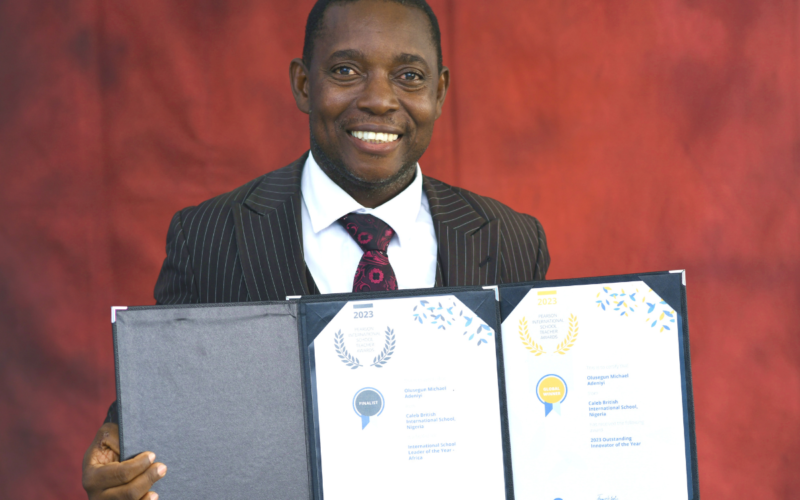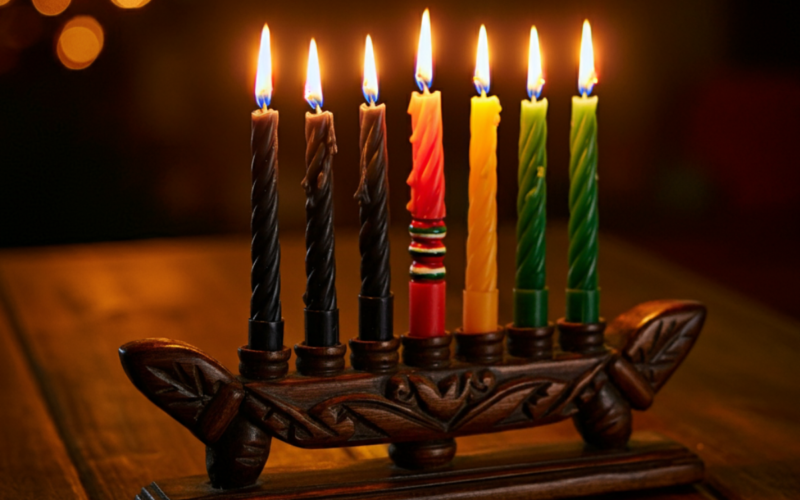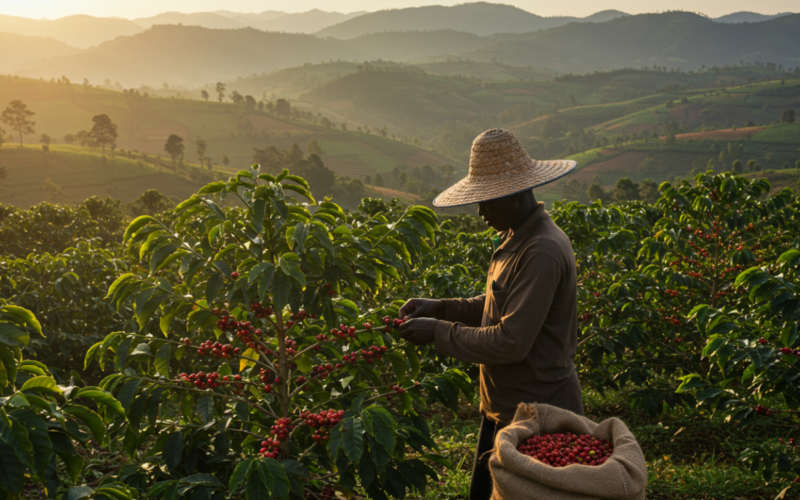Today, Afrobeats fills the clubs and African art sets trends. Audrey Kodjo is asking the question no one wants to answer: Why are the creators still invisible? Audrey, a proud Beninese creative director based in Austria, founded Diaspora Creatives to flip the script on how African talent is seen and celebrated in Europe. Tired of the tired clichés and one-dimensional stories about poverty and struggle, she built a platform that shines a spotlight on the real stories: the designers, musicians, photographers, and thinkers who are quietly driving global culture.
In this bold and unfiltered interview, Audrey talks about the power of positive storytelling, calls out Europe’s double standards, and explains why “giving back” shouldn’t be the only expectation placed on the diaspora.
Audrey Kodjo on Diaspora Creatives, African Identity, and Owning African Stories in Europe
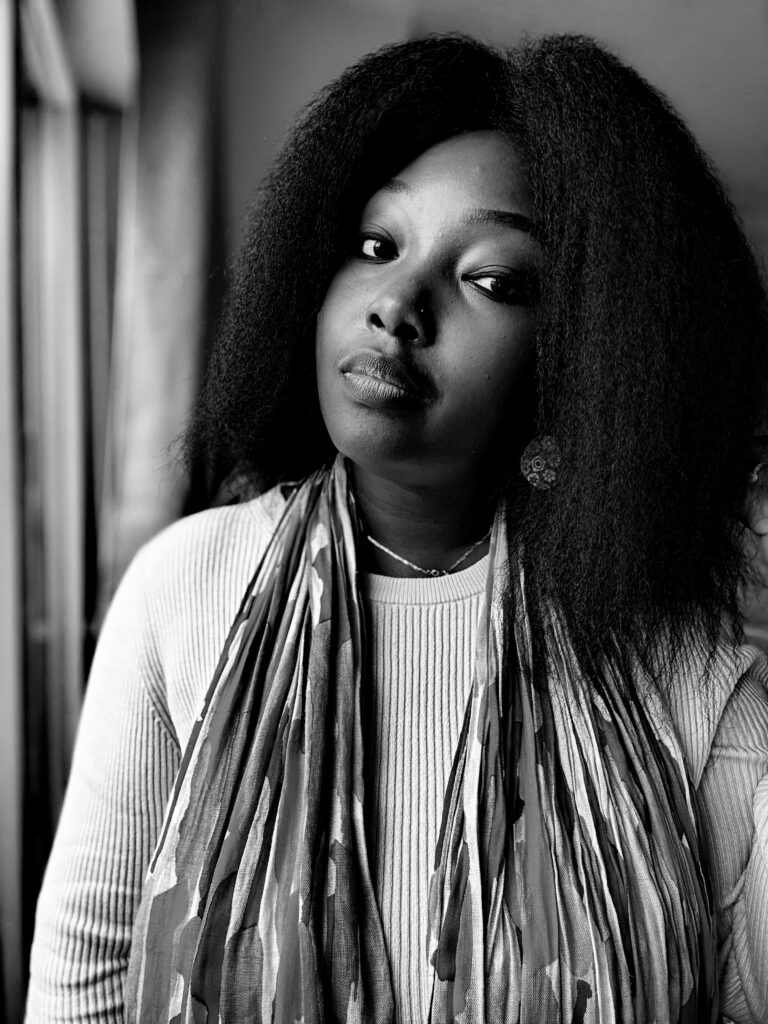
AB: As the founder of Diaspora Creatives, you serve as a voice for creatives in the diaspora. There must have been something you saw that sparked the initiative. What did you notice? What gap inspired you to create this community?
Audrey Kodjo: It all started years ago when I first arrived in Europe. At university, I was often the only African student in the room, and I quickly became aware of how negatively Africa was portrayed. This perception wasn’t entirely the fault of those around me; it stemmed from the media, the internet, and the widespread depiction of Africa as a continent defined by poverty and struggle.
If you Google African countries, the first images you see often reinforce these stereotypes. But they didn’t reflect the Africa I knew. I didn’t grow up living on the streets or in trees; I came from a home, from a community that had comfort, dignity, and pride.
That disconnect is where my journey began. Every chance I got, I tried to challenge those misconceptions. I would share photos of my home in Benin and say, “Look, this is where I live.” I would tell people, “I have friends back home with swimming pools in their houses, something you rarely find in the centre of cities like Vienna.” I don’t have a pool, but I live in a spacious home, and I certainly don’t live in a tree. This desire to shift perceptions is what gave birth to the idea of positive storytelling.
By 2012, I became actively involved with the African Diaspora Youth Forum in Europe. We focused on entrepreneurship and civic engagement, organizing international conferences where we invited representatives from the European Union, African Union, and business leaders. We discussed how to bridge both continents and support entrepreneurship for people of African descent in Europe.
That experience marked another stage in my journey. I became deeply engaged in understanding and advocating for the diaspora’s contribution to European society. Despite all we bring, cultural diversity, innovation, and resilience, the dominant narratives remained negative. Immigrants were painted as “stealing jobs”, when in fact, they were often doing the jobs others didn’t want. There was also this double standard in language: when Africans moved abroad, they were called “immigrants”, but when Europeans moved elsewhere, they were “expats”. These subtle differences were unsettling and unfair.
I’m a creative; I’m a graphic designer. I love photography, music, and dance. And I see the impact of African culture everywhere. Afrobeats, Amapiano, and European audiences embrace these genres, even if they don’t understand the lyrics. They’re dancing to our beats while the evening news broadcasts stories about stopping immigration. That contradiction struck me deeply.
I started looking for an organization that focused on African creatives, one that would highlight our contributions and tell these positive stories, but I couldn’t find anything like that in Austria. That’s when I decided to create Diaspora Creatives.
Why Diaspora Creatives Was Born
I wanted to build a platform that would counter the one-sided, negative narratives about Africa and elevate the voices of African talents in Europe. While our core focus is African creatives, Diaspora Creatives is open to other diaspora communities as well. We believe there’s so much we can learn from each other – what works, what inspires, and what drives impact. At the same time, we want to show other communities how we do things well and how we use creativity to create change.
Through this exchange, this synergy, we can build something greater, starting here in Austria, expanding across Europe, and ultimately impacting the world. That’s how Diaspora Creatives came to life.
The Double Standard in Europe’s Cultural Perception
FAB: Diaspora Creatives is all about valorizing African creators in Europe. What do you think is the biggest misconception about African creatives in the global space?
Audrey Kodjo: One of the biggest misconceptions isn’t just about African creatives; it’s a broader issue. It’s the idea that people of African descent always need to be helped. That narrative is misleading. When we, as Africans, move to European countries, we bring with us a wealth of intellectual capital and rich cultural heritage. These assets can and do contribute meaningfully to the societies we join.
We’re not just beneficiaries; we’re innovators. We participate in dialogues that enrich and diversify the cultural fabric of our environments. The “helping” mindset carries negative implications; it subtly suggests that African people are incapable of sustaining themselves or contributing meaningfully. But that’s simply not true.
We are resilient and intelligent. Our continent has so many strengths that deserve to be seen and celebrated. That’s why positive storytelling matters so much. It’s the reason we created the concept of positive narratives through creative work. We want to highlight the achievements of African creatives in Europe, people who pay taxes, protect their intellectual property, and contribute to the economy and society. Our goal is to shift the global perspective, to showcase what African creatives bring to the table, and how we’re helping to bridge Africa and Europe in real, tangible ways.
Recommended For You
Designing Memory: Kenneth Kanaabi’s Afrocentric Vision at Huema
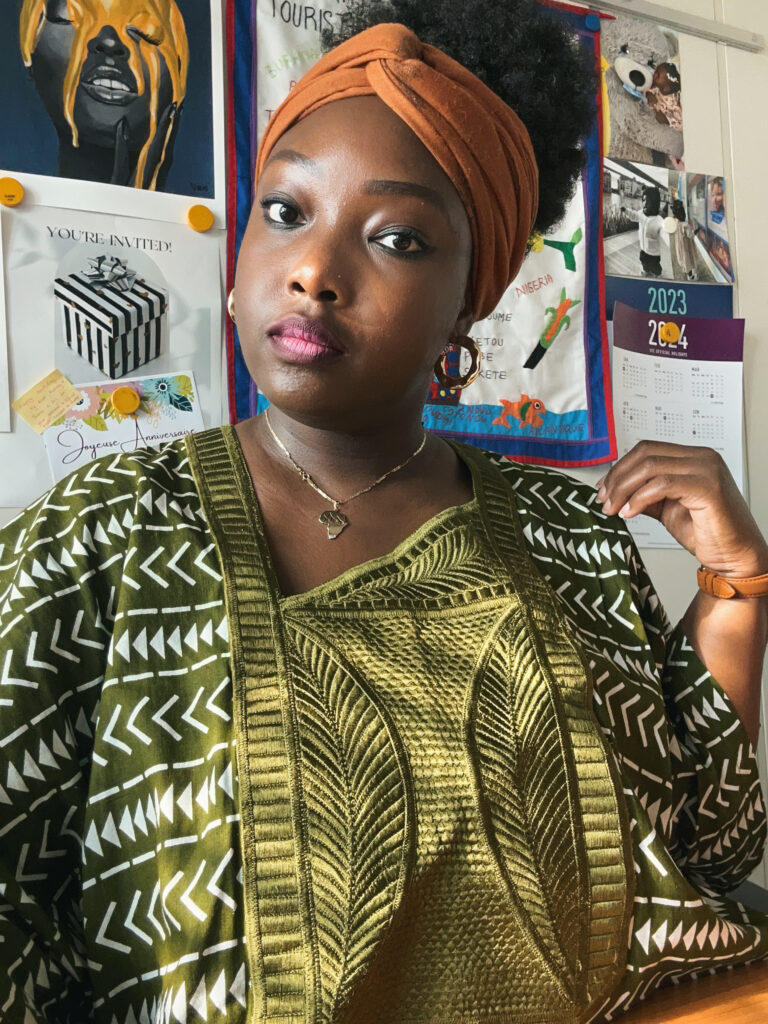
Success Doesn’t Always Mean “Going Back”
FAB: Many people expect the diaspora community to “give back”. How do you define diaspora success? Is it about returning home to contribute or making an impact from abroad?
Audrey Kodjo: I believe success is personal. It depends entirely on the individual, on what each member of the diaspora envisions for themselves. And whatever that looks like, if there’s resilience, growth, and contribution involved, I consider it success. Whether someone decides to stay in Europe or return to Africa, both paths are valid and valuable.
Think about it: leaving your home country, arriving in Europe where the language and systems are unfamiliar, and starting from scratch – that’s already a huge success. Learning German, for example, is no easy feat. Facing social rejection and still choosing to rise every day and push forward – that takes incredible strength.
Then, there are those who build something more, starting businesses, forming music groups, and earning a living through their talent. And if they go even further by returning to Africa to open a company or a label, supporting local communities, that’s success upon success.
So, for me, diaspora success isn’t a one-size-fits-all idea. It’s about the courage to leave, the resilience to adapt, and the commitment to thrive, wherever you are.
Can African Creatives Build Their Own Platforms?
FAB: You’re also passionate about leveraging digital platforms for business growth, alongside positive storytelling. What’s one digital strategy you think most creatives underestimate?
Audrey Kodjo: I would usually say social media, but with everything happening now, I’m not sure it’s the most reliable option. That said, building a digital community remains incredibly important, and that’s where social media still plays a role.
We live in a world that feels bigger than ever, even though borders haven’t changed. From the comfort of your home, your work can now reach people across the globe. That’s the power of a digital community. For creatives, this kind of community is essential. First, it gives visibility; people can discover your work, give feedback, and even purchase it, generating income. Second, it breaks geographical limits. You’re not confined to your city or country; you can connect with a global audience.
That’s why it’s important to know where your audience is, whether that’s on Instagram, Facebook, or WhatsApp, and focus on engaging them there. It’s not about numbers. There’s this trend of buying followers, but honestly, it’s better to have five real people who genuinely engage with your work than thousands of bots with no emotion. Impact happens through emotion, and only humans feel emotions. If someone is going to remember your craft, it’s because it touched them emotionally.
Of course, physical communities matter too. But if you want to scale your impact, having a strong digital community is the foundation. That’s always my starting point, and then other strategies can follow.
Audrey Kodjo: My first thought is: why don’t we build our own platforms? Why not pool resources, build capacity among ourselves, and create something that respects our creativity and responds to our needs, not just what global corporations dictate?
It’s not easy, of course, but it’s possible. We have the talent and, increasingly, the resources. I’ll give you an example, there’s a Nigerian in Austria, Michael Odafe, who developed an AI-powered app to help people write CVs for job applications. He’s pushing it actively in Nigeria, and it’s gaining traction. That’s exactly the kind of solution we need: homegrown, practical, and community-oriented.
Too often, we rely on platforms like TikTok or Instagram, but we don’t control them. I had a conversation recently where we asked, “What happens if Instagram or TikTok disappears tomorrow?” For many creatives, that would mean losing their entire audience. That’s a huge risk.
We need to think beyond these platforms and start building ecosystems that belong to us, where we can showcase our talents without being sidelined or underpaid. We shouldn’t just wait for someone to hand us solutions. With the internet and open-source tools, we can build platforms designed by us, for us. That’s how we ensure sustainability and avoid exploitation.
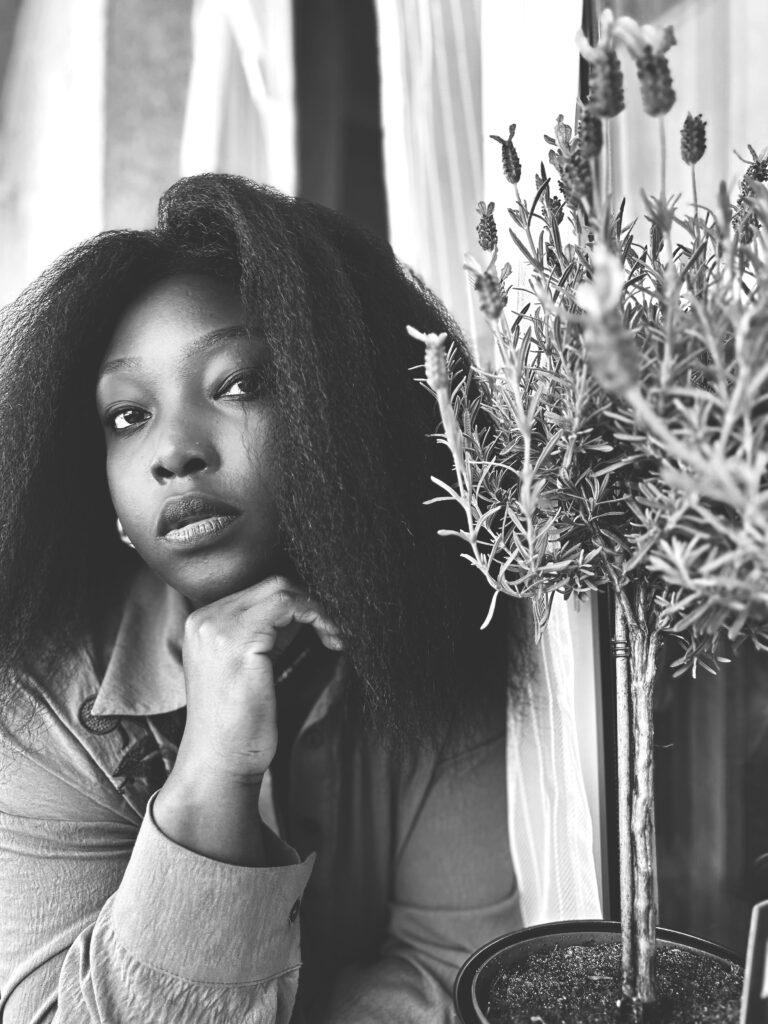
FAB: This brings up two major challenges. First, there’s the reality that many people still struggle to accept creations that originate from Africa. And second, there’s this surface-level familiarity; Africans often think they understand the continent, yet it’s foreign entities that invest the most time and resources into studying us. Ironically, they end up knowing more about us than we know about ourselves. How do we begin to manage that imbalance?
Audrey Kodjo: I won’t pretend to have the perfect solution, but I firmly believe it starts with re-educating ourselves. Too often, we overlook our own resources and knowledge until someone from Europe, China, or Japan highlights their value. Suddenly, we realize, “Oh, we had something worthwhile all along.” But by that point, those outsiders have already developed business models around our own assets.
There’s a pattern: we dismiss aspects of our culture or society until they’re validated by the West. Then, when we finally see the changes those outsiders have made, we recognize the true worth of what we had, but it’s often too late. That’s why we need to place value on our own culture from the beginning, explore it deeply, and develop creative solutions that work for us. We must stop waiting for others to review or approve our work before we see its importance.
FAB: What’s one underrated African destination you believe deserves global recognition?
Audrey Kodjo: Oh, why would you ask me that? Of course, I’m going to say Benin Republic! I wouldn’t pick anywhere else. Benin may be a small country, but it’s deeply underrated. People need to experience its rich culture, the warmth of the people, and the depth of its history. There’s a lot happening now in terms of tourism too. I’d especially recommend visiting on the 10th of January each year during the Vodun Days festival. So yes, I’d absolutely start with Benin.
FAB: Understandable, you’ve got a sentimental connection. Benin is home.
Audrey Kodjo: Exactly. But I’ve also lived in Nigeria and visited Kenya. What I’ve realized is that Africa is incredibly diverse. You can’t group the entire continent together—it doesn’t work like that. East, West, South, and North Africa all offer very different experiences. It really depends on what kind of energy or vibe you’re seeking in a destination.
FAB: That’s very true. Where did you stay while in Nigeria?
Audrey Kodjo: I lived in Abuja.
FAB: Your personal motto is, “If you don’t know where you’re going, look at where you’re coming from.” Having worked with international organizations like the UN, what’s one key lesson you think diaspora creatives can take from that experience?
Audrey Kodjo: If I had to choose just one lesson, I’d go right back to that quote. I return to it whenever I feel lost, whether creatively, professionally, or even personally. For me, values and culture are the foundation of everything I do. If I’m ever working on something that contradicts those values, I know I’m not on the right path.
One principle I live by is: treat people the way you want to be treated. I want to be met with kindness and love, so I extend those same things to others. And as a creative in the diaspora, I know I want support, but before expecting support, I also try to show up for others in meaningful ways.
Ultimately, it comes back to self. Who are you? What do you stand for? How do you want to be remembered, not in terms of material things, but in terms of what truly brings peace and purpose to your life? If your professional work forces you to compromise those values, you’ll eventually feel unhappy. You may need to explore new paths, and that’s okay.
In my creative process, I always root myself in where I come from. Whether I’m designing, organizing projects, or planning events, there’s always an element of my heritage embedded in it. That’s the advice I’d give to other creatives: stay connected to your identity, your principles, and the legacy you want to leave behind.
